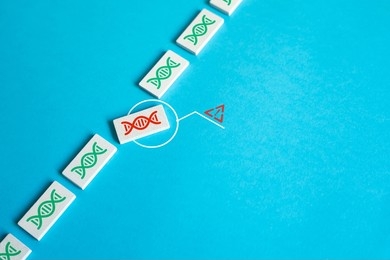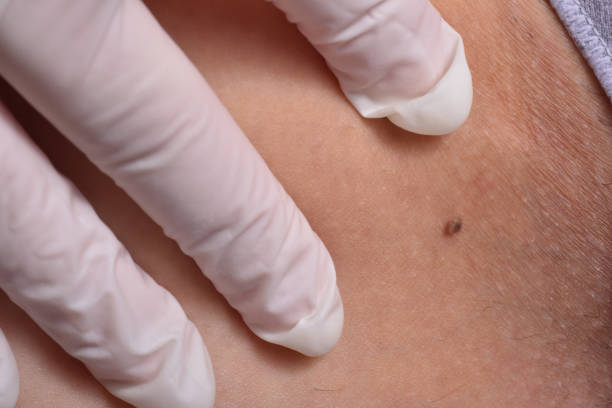In today’s fast-paced world, where health concerns are prevalent, the significance of early detection of diseases cannot be overstated. Early detection not only saves lives but also enhances treatment outcomes and reduces healthcare costs. This article delves into the importance of early detection, innovative technologies, common symptoms, preventive measures, and lifestyle changes to mitigate the risks associated with various diseases.
Early Detection Technologies
Technological advancements have revolutionized the landscape of healthcare by introducing innovative testing methods. From sophisticated imaging techniques to genetic screenings, healthcare professionals now have access to tools that enable the early detection of diseases. These technologies empower medical practitioners to identify health issues at their nascent stages, facilitating timely interventions and improving patient outcomes.
Common Symptoms and Testing
Recognizing common symptoms associated with various diseases is crucial for timely diagnosis and treatment. Symptoms such as dizziness, migraines, hot flashes, fatigue, slow bowel movement, and fungal infections often serve as red flags, prompting individuals to seek medical attention. Moreover, undergoing regular screenings based on age, gender, and risk factors can aid in the early detection of underlying health conditions, allowing for proactive management and prevention of complications.
Top Causes of Death
In the United States, heart attack, stroke, and cancer remain the leading causes of death. These conditions often manifest without warning signs, making early detection challenging yet imperative. By raising awareness about the prevalence and consequences of these diseases, individuals can take proactive steps to monitor their health, undergo regular screenings, and adopt healthier lifestyles to mitigate their risk factors.
Impact of Lifestyle Changes
The impact of lifestyle factors on disease development cannot be overlooked. Conditions like Alzheimer’s and Parkinson’s disease are not only influenced by genetic predispositions but also by lifestyle choices. Engaging in regular physical activity, maintaining a balanced diet, managing stress levels, and avoiding harmful habits like smoking and excessive alcohol consumption are paramount in reducing the risk of these debilitating diseases.
Innovations in Cancer Detection
The field of oncology has witnessed remarkable advancements in cancer detection technologies. Techniques such as fluorescence imaging and liquid biopsy have revolutionized the early detection and monitoring of cancerous growths. These non-invasive methods offer higher sensitivity and specificity compared to traditional screening methods, enabling healthcare providers to detect cancer at its earliest stages when treatment is most effective.
Preventive Measures
Preventive healthcare measures play a pivotal role in reducing the burden of chronic diseases. Biomarker questionnaires, family history reviews, and early screening tests for heart disease, stroke, cancer, Alzheimer’s, and Parkinson’s are essential components of preventive healthcare. By identifying risk factors and implementing appropriate interventions, individuals can significantly reduce their susceptibility to diseases and improve their overall quality of life.
Focus on Lifestyle Improvement
While pharmaceutical interventions have their place in disease management, a greater emphasis is now placed on lifestyle modifications and nutritional interventions. Adopting a holistic approach to healthcare involves promoting healthy behaviors such as regular exercise, adequate sleep, stress management, and a balanced diet rich in fruits, vegetables, and whole grains. These lifestyle changes not only prevent the onset of diseases but also complement medical treatments, leading to better health outcomes.
In conclusion, early detection plays a pivotal role in mitigating the impact of diseases on individuals and society as a whole. By leveraging innovative technologies, recognizing common symptoms, understanding the leading causes of death, promoting lifestyle changes, and embracing preventive measures, individuals can take proactive steps towards safeguarding their health and well-being.
FAQs
- Why is early detection important in healthcare? Early detection enables timely intervention, improves treatment outcomes, and reduces healthcare costs.
- What are some common symptoms that warrant testing for diseases? Common symptoms include dizziness, migraines, hot flashes, fatigue, slow bowel movement, and fungal infections.
- What are the top causes of death in the United States? Heart attack, stroke, and cancer are the leading causes of death in the United States.
- How do lifestyle changes impact disease development? Lifestyle factors such as diet, exercise, and stress management significantly influence the risk of developing diseases like Alzheimer’s and Parkinson’s.
- What preventive measures can individuals take to maintain their health? Biomarker questionnaires, family history reviews, early screening tests, and lifestyle modifications are crucial preventive measures for maintaining health and well-being.




